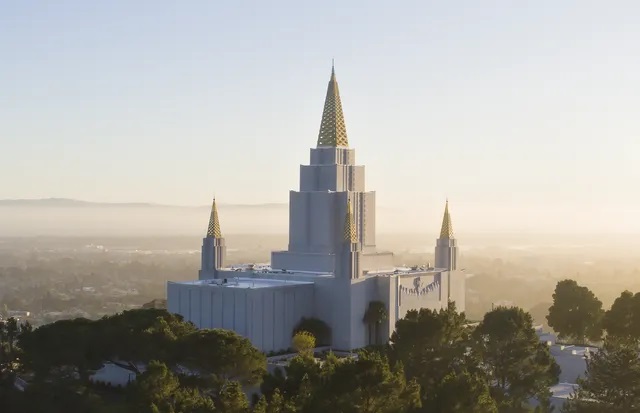Question
Gramps,
Are temple ordinances a requirement for resurrection? Can a person be resurrected if their temple work is not done?
Dennis
Answer
Dennis,
The doctrines regarding resurrection and temple work in The Church of Jesus Christ of Latter-day Saints are foundational to understanding the eternal nature of life and the significance of gospel ordinances. As members of the Church strive to deepen their understanding of resurrection, it is essential to clarify the relationship between temple work and resurrection.
The first point to comprehend is that resurrection is a universal gift extended to all of God’s children, made possible through the Atonement of Jesus Christ. According to the doctrine of The Church of Jesus Christ of Latter-day Saints, every individual who has ever lived will be resurrected (Alma 11:42-43). This resurrection is characterized as a restoration of the body and spirit, meaning that all will eventually receive a glorified, immortal body regardless of their earthly choices.
This doctrine reinforces the belief that resurrection is not contingent upon one’s acceptance of the gospel during mortal life. However, while resurrection is universal, the nature and quality of the resurrected state are influenced significantly by an individual’s acceptance of gospel principles and the performance of essential ordinances, such as baptism, that are often facilitated through temple work (Doctrine and Covenants 76). Therefore, while resurrection itself is a guaranteed gift, the degree of glory attained in the afterlife is determined by one’s adherence to gospel teachings and the ordinances received.
Temple work holds a significant place in the belief system of The Church of Jesus Christ of Latter-day Saints. Members perform vicarious ordinances on behalf of deceased individuals who did not have the chance to receive these ordinances in life. Notable ordinances performed include baptisms, confirmations, and sealings, which are believed to be necessary for exaltation in the highest realms of the Celestial Kingdom.
The living have a divine responsibility to perform these ordinances for the deceased, highlighting the interconnectedness of families across generations. This practice fulfills the mandate outlined in scripture, emphasizing that all individuals must have the opportunity to accept the gospel, even after death (Doctrine and Covenants 138). The act of performing temple ordinances for the dead is viewed as a partnership with Christ in the work of salvation (1 Corinthians 15:29). It is a profound expression of love and commitment that transcends mortality, allowing families to be united eternally.
Furthermore, the Church teaches that individuals in the spirit world have the opportunity to accept the gospel and the ordinances that were not available to them during their earthly lives. This belief is supported by revelations in Doctrine and Covenants 138, which describes how the Savior organized missionary work among the spirits of the dead, providing them the chance to embrace the gospel (D&C 138:33-34). Thus, while temple work is not a requirement for resurrection itself, it is essential for those who wish to attain the blessings of the Celestial Kingdom and experience a fullness of joy in the afterlife.
The Church of Jesus Christ of Latter-day Saints teaches that the timing of resurrection varies among individuals. The first resurrection began with Christ, encompassing those who lived righteously and accepted the gospel during their earthly lives. Scripture further explores this concept, indicating that certain groups will be resurrected at different times, with an emphasis on the need for all saving ordinances to be completed before the resurrection (Alma 11:43; 1 Corinthians 15:22-23).
Temples are considered sacred spaces where members can receive ordinances necessary for salvation and exaltation. The teachings learned within temples help members understand the fullness of the gospel and prepare them to return to God’s presence (Exodus 40:12-15; 1 Kings 7:23-26). The temple experience is not merely about performing ordinances; it is also about receiving revelation, strengthening faith, and deepening one’s relationship with God.
Ultimately, resurrection leads to a final judgment, where individuals are assessed based on their works and adherence to the gospel. Those who have received the necessary ordinances and lived according to God’s commandments can attain eternal life and dwell in the presence of God (Revelation 20:12). This process underscores the importance of temple work, as it provides the necessary means by which individuals can be linked to their ancestors and receive the blessings of salvation.Resu
In conclusion, while temple work is not a requirement for resurrection itself, it plays an integral role in the eternal plan of salvation as understood by The Church of Jesus Christ of Latter-day Saints. Resurrection is a universal gift bestowed upon all individuals, but the nature of that resurrection is influenced by one’s acceptance of the gospel and the performance of essential ordinances. Temple work serves as a bridge between the living and the dead, connecting families in the eternal perspective. It is a manifestation of love, faith, and the eternal nature of the soul, inviting all to participate in God’s plan of happiness.
As members of the Church, it is vital to embrace the principles of temple work, understanding its significance not only for ourselves but also for our ancestors. Engaging in temple service allows us to fulfill divine mandates, strengthen family ties, and ensure that all individuals have the opportunity to accept the gospel—even beyond the grave. By participating in this sacred work, we contribute to the unfolding of God’s eternal plan and prepare ourselves for the glorious resurrection that awaits us all.
Gramps







